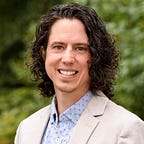Self-Care is Actually Self Defense
Surviving contemporary work culture requires a firmer side of self-care
The rain is a steady stream outside my office window. It’s called an atmospheric river. It’s a relatively narrow band of clouds that drop a tremendous amount of rain in a short amount of time. The slight wind blows what sounds like a fountain of water against the windows of my office.
Inside, there is another rainstorm happening but much less dramatic. It's coming from one of my students. She is sitting in a chair across from me. Her eyes swelled from crying, she shares the difficulties she has had recently. She’s been working as a counselor intern at a community agency. This is the last rung of her graduate training to become a professional mental health counselor.
But the work is hard and the politics of work, perhaps harder. She reflects on the reason why she wanted to become a professional mental health counselor. Motivated to help others, she imagined the internal warmth felt from altruistic actions. She smiles a bit as she recalls this.
The realities of the work are less warm and fuzzy than she had imagined. The multiple competing demands of contemporary work are formidable challenges. She’s not alone. The stress and demand on many workers are at peak burnout.
